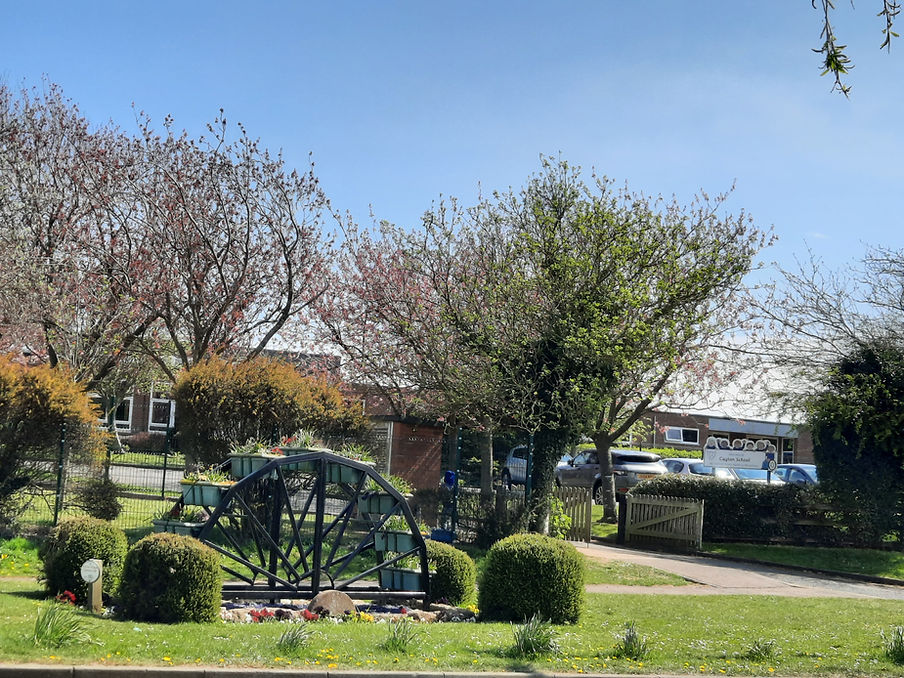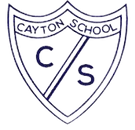

Learn from yesterday, seek today and aim for tomorrow
“There are high expectations for all pupils. Pupils’ attendance is high. Pupils’ conduct in and around school is exemplary.”
“Parents and carers are committed to the school. They are overwhelmingly positive about the impact the school has on their children.” “Pupils thrive in a carefully developed, nurturing environment.” “Pupils have an appetite for learning.”
“All decisions at Cayton are taken with the pupils’ best interests at their centre.” Ofsted November 2024
IMPORTANT: Please note that we are a nut-aware school. Nuts should not be brought into the building due to allergies.
Being a French linguist at Cayton
Cayton School uses the Language Angels scheme of work and resources to ensure we offer a relevant, broad, vibrant and ambitious foreign languages curriculum that will inspire and excite our pupils using a wide variety of topics and themes.
All pupils will be expected to achieve their full potential by encouraging high expectations and excellent standards in their foreign language learning - the ultimate aim being that pupils will feel willing and able to continue studying languages beyond key stage 2.
The ambition is that all content will be continuously updated and reviewed annually, creating a dynamic programme of study that will be clearly outlined in both medium-term and short-term planning. This will ensure that the foreign language knowledge of our pupils progresses within each academic year and is extended year upon year throughout the primary phase and, in so doing, will always be relevant and in line with meeting or exceeding national DfE requirements.
The four key language learning skills; listening, speaking, reading and writing will be taught and all necessary grammar will be covered in an age-appropriate way across the primary phase. This will enable pupils to use and apply their learning in a variety of contexts, laying down solid foundations for future language learning and also helping the children improve overall attainment in other subject areas.
The ambition is that all pupils will develop a genuine interest and positive curiosity about foreign languages, finding them enjoyable and stimulating. Learning a second language will also offer pupils the opportunity to explore relationships between language and identity, develop a deeper understanding of other cultures and the world around them with a better awareness of self, others and cultural differences.
The intention is that they will be working towards becoming life-long language learners.
The National Curriculum states that “The national curriculum for languages aims to ensure that all pupils: Understand and respond to spoken and written language from a variety of authentic sources. Speak with increasing confidence, fluency and spontaneity, finding ways of communicating what they want to say, including through discussion and asking questions, and continually improving the accuracy of their pronunciation and intonation. Can write at varying length, for different purposes and audiences, using the variety of grammatical structures that they have learnt. Discover and develop an appreciation of a range of writing in the language studied".
“Learning another language is not only learning different words for the same things, but learning another way to think about things.” – Flora Lewis
The Learning Journey
Lower Key Stage 2
Throughout Lower Key Stage Two children will develop their listening skills. They will listen to and enjoy short stories, nursery rhymes and songs. Recognise familiar words and short phrases covered in the units taught. Learn to listen to longer passages and understand more of what we hear by picking out key words and phrases covered in current and previous units. They will develop their speaking skills and be able to communicate with others using simple words and short phrases covered in the unit. Communicate with others with improved confidence and accuracy. Learn to ask and answer questions based on the language covered in the units and incorporate a negative reply if and when required.

Children will develop their reading skills and be able to read familiar words and short phrases accurately by applying knowledge they have previously learnt. They will be taught to understand the meaning in English of short words they read in the foreign language. Read aloud short pieces of text applying knowledge learnt. Understand most of what they read in the foreign language when it is based on familiar language. Their writing skills will be developed through writing familiar words and short phrases using a model or vocabulary list. Write some short phrases based on familiar topics and begin to use connectives/ conjunctions and the negative form where appropriate – my name/ where I live/ my age. Their grammar skills will develop through beginning to understand the concept of noun gender and the use of articles.
Upper Key Stage Two

Throughout Lower Key Stage Two children will develop their listening skills further and listen more attentively and for longer. Understand more of what they hear even when some of the language may be unfamiliar by using the decoding skills they have developed. Listen to longer text and more authentic foreign language material. Learn to pick out cognates and familiar words and learn to ‘gist listen’ even when hearing language that has not been taught or covered.
Children will develop their speaking skills further by being able to communicate on a wider range of topics and themes. Remember and recall a range of vocabulary with increased knowledge, confidence and spontaneity. Learn to recall previously learnt language and recycle/ incorporate it with new language with increased speed and spontaneity. Engage in short conversations on familiar topics, responding with opinions and justifications where appropriate.
Children will develop their reading skills further by being able to understand longer passages in French and start to decode meaning of unknown words using cognates and context. Increase their knowledge of phonemes and letter strings using knowledge learnt. Be able to tackle unknown language with increased accuracy by applying knowledge, including awareness of accents, silent letters. Decode unknown language using bilingual dictionaries.
Their writing skills will be developed so they are able to write a paragraph using familiar language incorporating connectives/ conjunctions, a negative response and adjectival agreement where required. Children will learn to manipulate the language and be able to substitute alternatives (My name, my age, where I live, a pet I have, a pet I don’t have and my pet’s name). Write a piece of text using language from a variety of units covered and learn to adapt any models provided to show solid understanding of any grammar covered. Also start to incorporate conjugated verbs and learn to be comfortable using connectives/ conjunctions, adjectives and possessive adjectives (a presentation or description of a typical school day including subjects, time and opinions.
Grammar skills will be developed further through revision of gender and nouns and children will learn to use and recognise the terminology of articles (define, indefinite and partitive). Understand better the rules of adjectival agreement and possessive adjectives. Start to explore full verb conjunction (I wear/ he/she wears) and also be able to describe clothes in terms of colour (my blue coat). Consolidate their understanding of gender and nouns, use of the negative, adjectival agreement and possessive adjectives (which subjects I like at school and also which subjects I do not like). Become familiar with a wider range of connectives/ conjunctions and more confident with full verb conjunction – both regular and irregular (to go/ to do/ to have/ to be).



